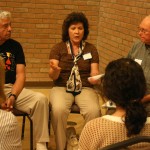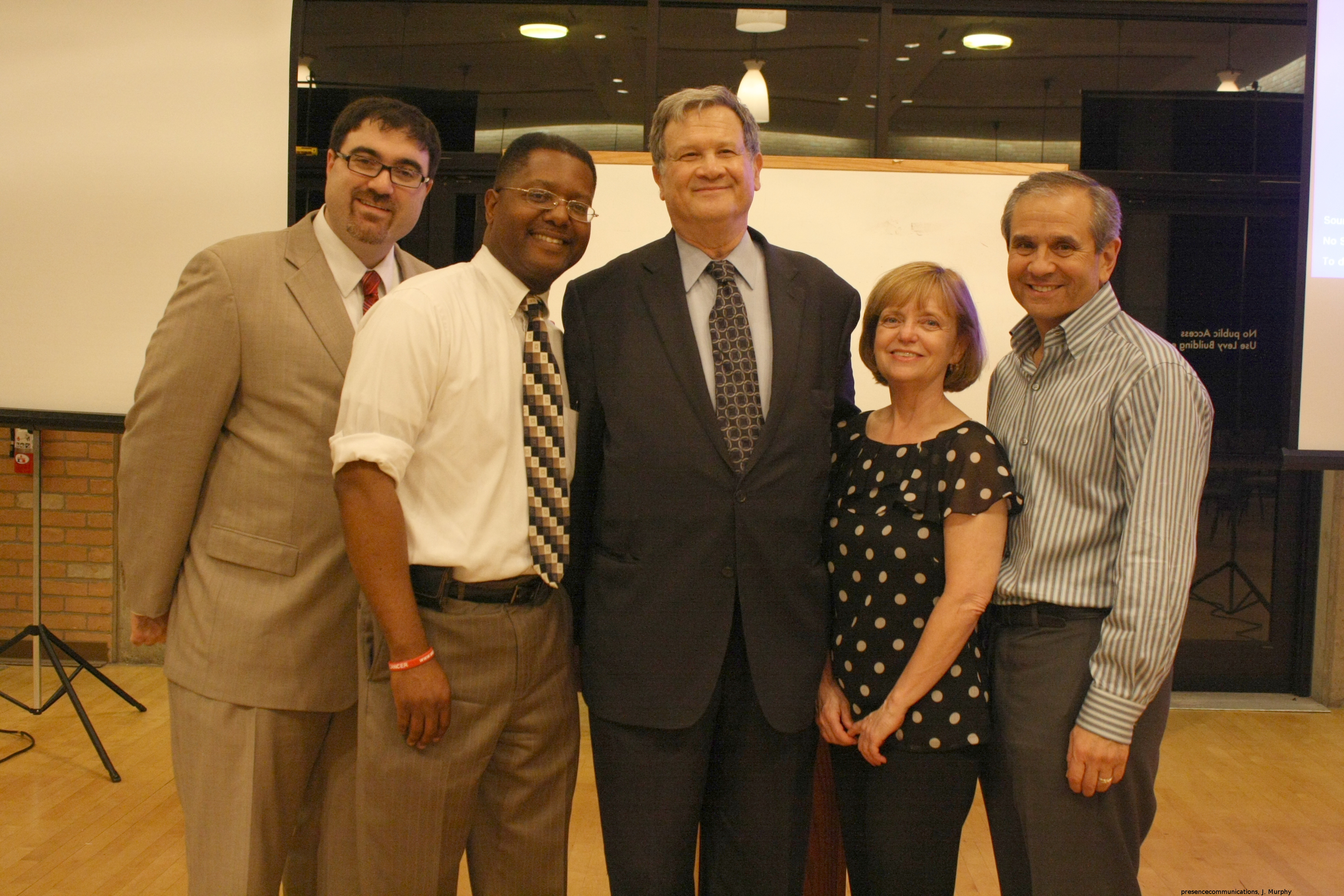By: Jacquinette Murphy, NDG Contributing Writer
The Affordable Care Act, derisively coined as Obamacare by opponents of the law, is the main reason about 120 citizens in the Dallas-Fort Worth area gathered with the Dallas Area Interfaith’s (DAI) Just Congregations organization for a simple conversation at Temple Emanu-El inNorth Dallas.

Associate Rabbi Asher Knight, Clergy Liaison to Social Justice at Temple Emanu-EL, defined DAI as an organization of organizations whose goal is to create the public square by which the public business is done.
“We live in a divided space that is sometimes very fragmented and keeps us from having a conversation and acting together.” said Knight. “We are trying to understand through the conversations what needs are widely and deeply affecting people in our community. So, we as a people can act together to make a change. It is about building capacity and powering together.”
On this evening, the attendees represented about 25 unique institutions, but the common topic of thought was the healthcare act and its impact on Dallas-area citizens.
“Dallas is the second most uninsured city inTexas with more than 1.4 million people in the metro area without healthcare coverage,” began Dr. Barry Lachman, Medical Director of the Parkland Community Healthcare Center and main speaker of the night as he shared insight on Health Care Reform. “Texas has the highest number of uninsured in the U.S., and the highest number of uninsured children in Texas. In Dallas, 90-percent of the uninsured are citizens.”
He unveiled these statistics as he showcased proposed approaches toU.S. healthcare reform. Lachman stated that America is using a rationing model by limiting services based on income and the employer-based healthcare service model with the latter being the most common.

“It has been the main stay of offering healthcare insurance since the 1940s. It is in rapid decline and at the point of virtual collapse,” he stated in regards to the current access to healthcare benefits. “You have health care coverage, but you can not meet the deductible or copays. It is a very inefficient system.” He also detailed the savings account and free market selection models. The free market selection model is said to not be efficient, because the demand is not inelastic.
However, the public utility model was referred to as a more reasonable model because competition is based on benefits and customer service instead of cost. It also recognizes that healthcare is an essential need for the consumer. Lachman detailed its correlation to the managed care model upon which the Medicaid program is founded.
“In this type of model, the insurance companies compete with only a limited number of people. They compete on benefits, customer service and who is in their network,” he recalled. “It worked inTexas.” According to Lachman, the implementation of the Affordable Care Act as it is written will improve Texas’ position of healthcare insurance coverage from its current 30-percent being uninsured to only 10 -percent.
President Barack Obama signed the Affordable Care Act into law in 2010, which aims to put in place healthcare reforms. Different phases were implemented immediately with all measures rolling out through 2014 and beyond.

The goal by 2014 is all Americans will have access to affordable health insurance options (Healthcare.gov). All businesses and individuals will be able to compare health plans on a level-playing field and even mid- to low-income families will have an opportunity to utilize services usually above their economic reach.
In 2010, the Act focused on protecting the consumer rights and increasing the access to and improving the quality of insurance along with decreasing the coverage costs. This enabled small businesses to receive federal credits for offering their employees health coverage. Also, it eliminated the denial of coverage of children based on preexisting conditions; the annual dollar limits on essential benefits and enhanced the appellate process for consumers.
In 2011, came the prescription drug discounts for seniors and free preventive care. It also increased access to home and community-based services for the disabled individuals through Medicaid and made the insurance companies more accountable of premium dollars and overpayments with the mandate of 85-percent of every health insurance dollar to be spent on health care services and quality improvement.
The year of 2012 is geared toward improving the quality of care at the hospital level and the creation of accountable care organizations that can provide high-quality patient care at a reduced cost to the systems. There is also a push to digitize the administrative records, focus on fighting health disparities and creating a long-term cash benefits for adults who are disabled.
For 2013, there is a dedication to increasing preventive healthcare coverage and payment bundling for healthcare services received, the increase of Medicaid payments to doctors as they serve more patients and additional funding to children’s programs not eligible under Medicaid.
The years of 2014-2015, The Affordable Care Act as written would prohibit insurance companies from the discrimination of coverage based on preexisting conditions, gender or health status. Also, physicians will be paid on the value of patient care provided not on the volume. An insurance provider will not be able to decrease or remove coverage of patients that participate in clinical trials. Additionally, the Affordable Insurance Exchange will be created to allow consumers to purchase coverage directly from provider if their employer does not offer it. There will also be aid for moderate-income families to increase their access to quality healthcare.

However, the country is awaiting a ruling from the Supreme Court on the Affordable Care Act; they are expected to rule this month on the constitutionality of the mandate and other provisions.Texasis one of nearly 30 states fighting the federal government’s authority to require the states to implement the reform’s provisions.
Lachman summed, “It would provide better coverage if you are already covered by Medicare and or commercially insured.” He also stated that it is almost, but is not universal coverage. “For Medicare recipients, “the donut hole” goes away.”
After the main conversation, the attendees shared their personal impact stories in small groups, followed by summary reports shared with the whole group. The statements ranged from the concerns of parents paying for adult children’s insurance due to unemployment, high insurance and long-term healthcare rates, and the lack of early retirees to find affordable coverage and covered by COBRA. Also, stated was the need for respicare (respite care) for caregivers and the absence of dental care in The Affordable Care Act.
In addition to Knight, Penny Coney and Barbara Hyman, Michael Rosen and Reverend Willie Bennett are among the local leaders of DAI. There are about DAI 40 teams in theDallasarea. The organization uses community organizing to help people get to know each other and to learn the needs of one another by sharing their stories.
Want to join the conversation? Contact the DAI at or the Just Congregations Committee at Temple Emanu-El at http://www.tedallas.org/justcongregations/dai.htm.




